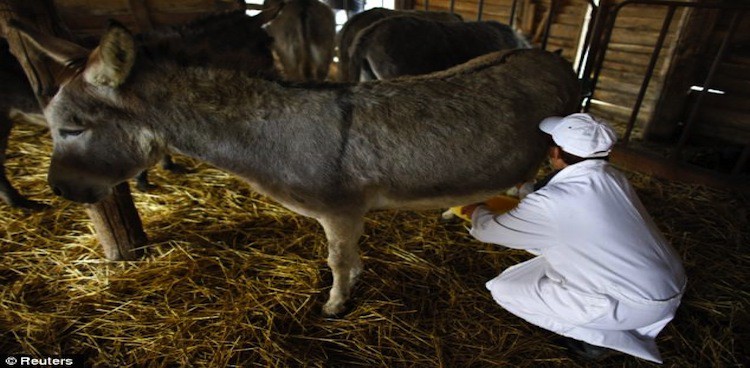Pule cheese is very rare, made from donkey’s milk, and its production costs are very high.
Slobodan Simic shows part of the process for the production of “Pule” – the most expensive cheese in the world, which costs 1,000 euros per kilogram and is made from donkey’s milk in Zasavica, Serbia.
It is said that donkey’s milk has many healing properties because it is very similar in composition to human milk.
It contains anti-allergens, has 60 times more vitamin C than cow’s milk and is very low in fat.
Pule cheese is very rare and its production costs are very high.
There are only 140 donkeys in the Zasavitsa Nature Reserve, where milk and cheese are produced.
There are only a dozen females who can give milk at any time.
One liter of donkey’s milk costs 40 euros, and 25 liters of milk are needed to produce one kilogram of cheese.
Cheese enthusiasts and foodies from all over the world are clamoring for a taste of pule because of its renowned flavor. Described as crumbly and soft, it is said to have a similar taste to that of Spanish manchego, but with a deeper and richer flavor. The superior qualities of donkey’s milk have been revered for thousands of years, and legend has it that the Egyptian queen Cleopatra bathed in donkey’s milk in an attempt to preserve her beauty. Containing only 1% fat and sixty times more Vitamin C than cow’s milk, donkey’s milk has a long history as an ingredient in health and beauty regiments; the Zasavica Reserve also sells donkey’s milk soap, for those who believe in its restorative powers.
Of course, if you’re looking for a novelty cheese-eating experience and aren’t specifically craving pule, there are many types of cheeses that are made with “exotic” alternative milks. Camels, reindeer, and yak are just a few of the unexpected animals whose milk is used in cheese production, all of which are less expensive and more easily accessible than the ever-elusive Pule.









